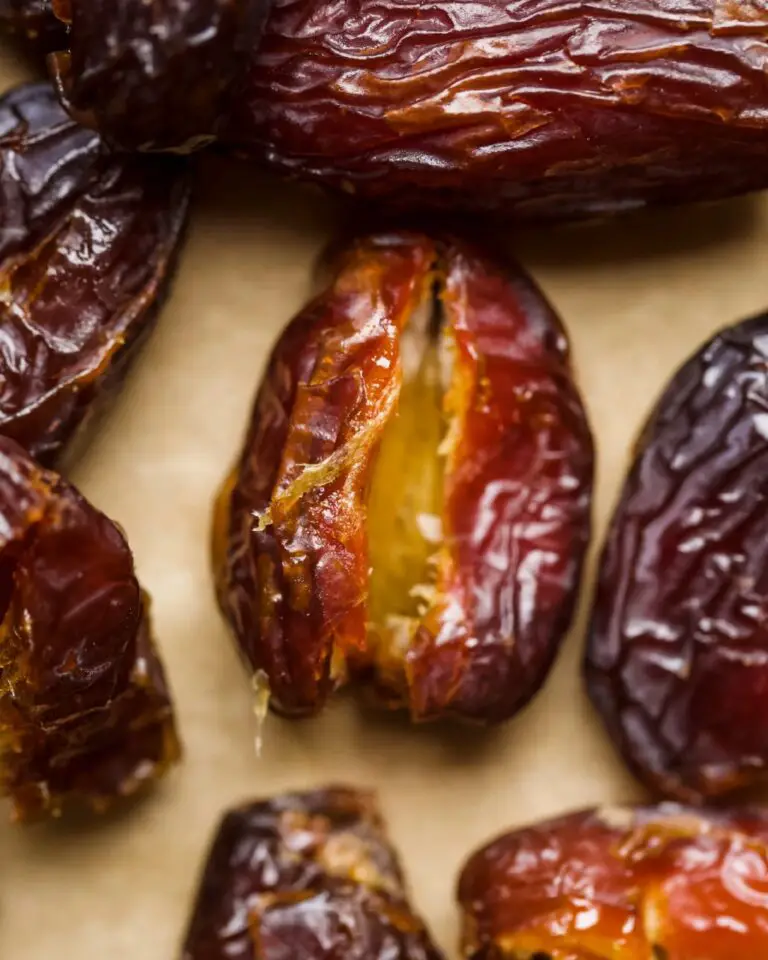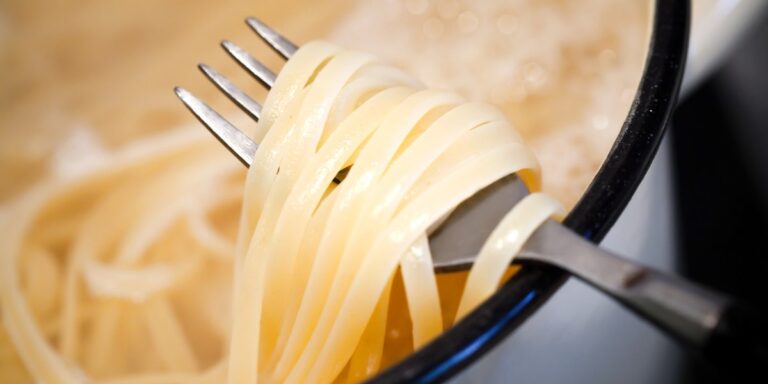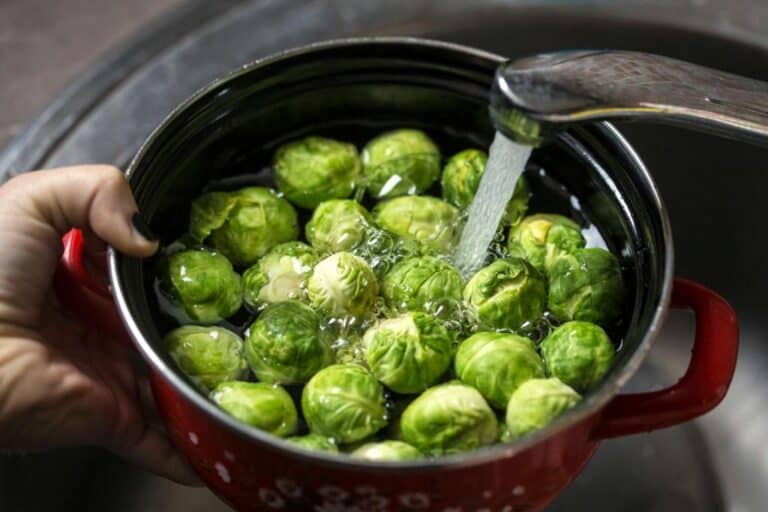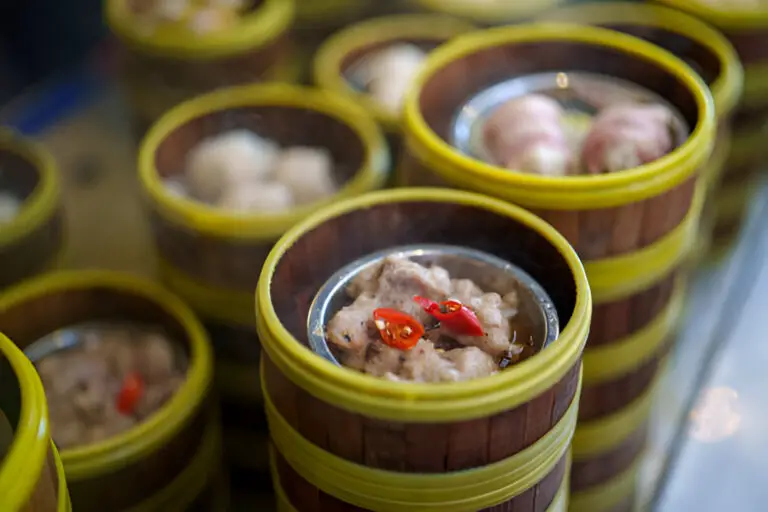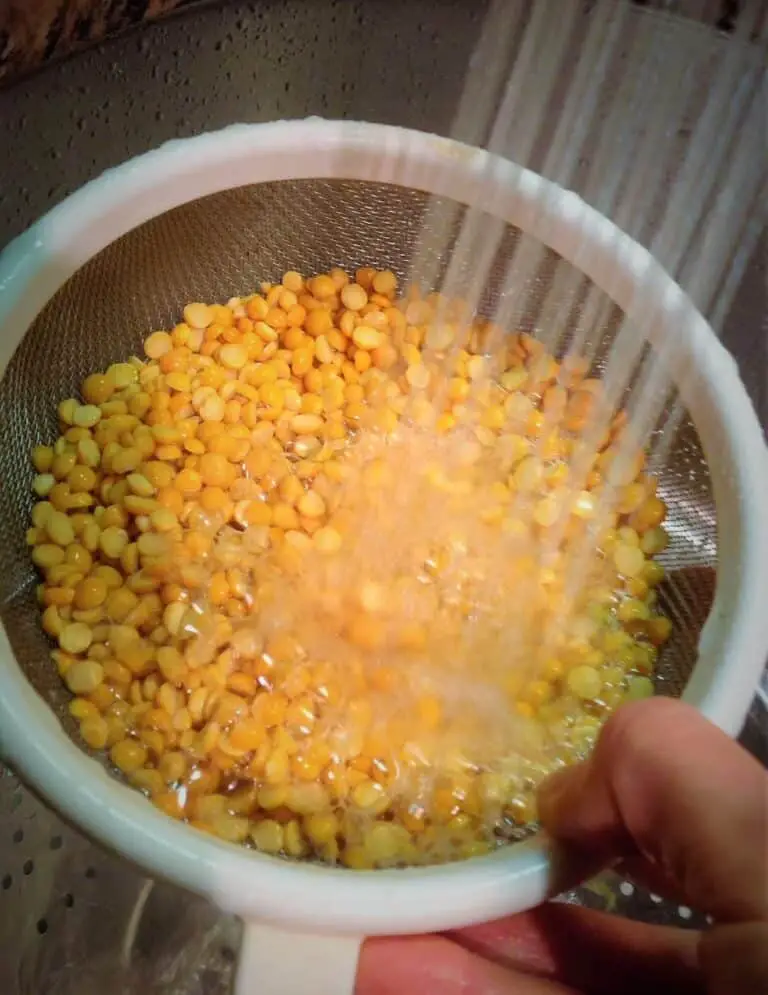How Do You Cook Frozen Brussels Sprouts So They Are Not Bitter?
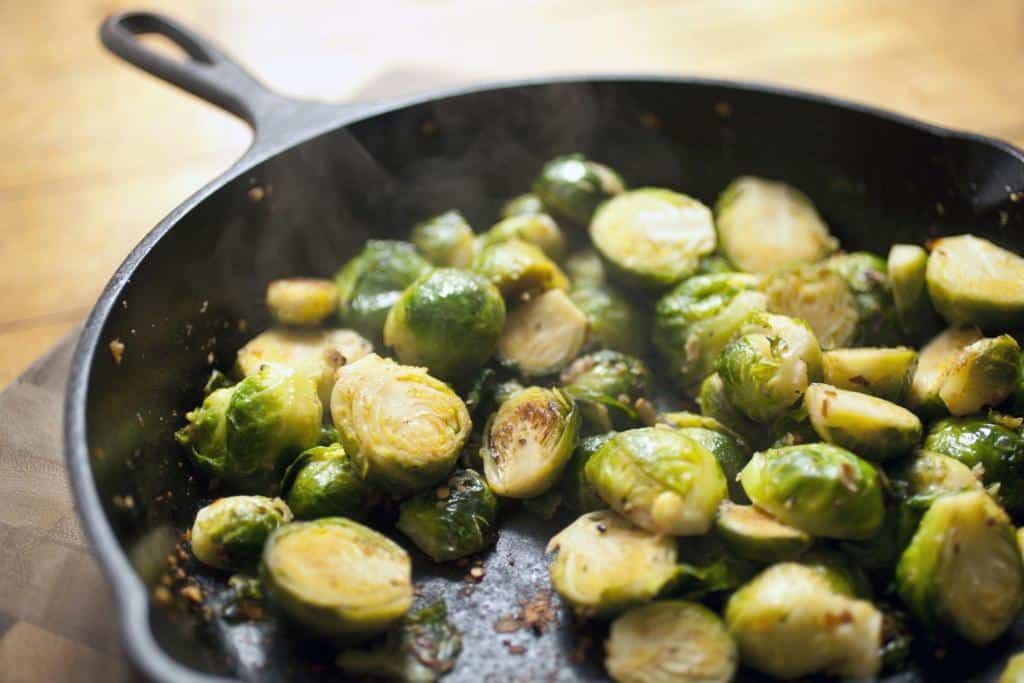
Are you tired of bitter Brussels sprouts ruining your culinary endeavors? If you’ve ever faced the challenge of cooking frozen Brussels sprouts and ended up with a less-than-desirable taste, fear not! We’re here to help you unlock the secret to transforming these little green gems into a delightful and bitter-free dish.
In this article, we will guide you through the art of cooking frozen Brussels sprouts, ensuring that each bite is bursting with flavor and satisfaction. From choosing the right sprouts to mastering the cooking techniques that banish bitterness, we’ll provide you with all the tips and tricks you need.
So, put those preconceived notions aside and get ready to create a truly enjoyable Brussels sprout experience that will have you coming back for more. Get ready to impress your taste buds and elevate your cooking game with our foolproof methods. Say goodbye to bitterness and hello to a delicious new chapter in your Brussels sprout journey!
Understanding the Science Behind Bitterness in Brussels Sprouts
Bitterness in Brussels sprouts is a fascinating phenomenon that can be attributed to several factors. By delving into the intricacies of these factors, we can gain a deeper understanding of the science behind bitterness and devise more effective strategies to tackle this issue.
One of the key contributors to the bitterness of Brussels sprouts is the presence of natural compounds known as glucosinolates. These compounds lend the sprouts their distinct flavor but can also lead to bitterness. When Brussels sprouts are cooked or undergo mechanical damage, these glucosinolates break down and release sulfur compounds. These sulfur compounds are notorious for their pungent aroma and are primarily responsible for the bitter taste that can overwhelm our taste buds.
Among the sulfur compounds that play a role in the bitterness of Brussels sprouts, isothiocyanates take center stage. When the sprouts are exposed to heat during cooking, isothiocyanates are released in larger quantities, intensifying the bitterness. Therefore, the cooking method and duration can significantly impact the bitterness levels in our beloved sprouts.
To achieve a delectable outcome, it is vital to understand the impact of various cooking methods on the bitterness of Brussels sprouts. Some techniques can help mitigate bitterness while enhancing the overall flavor. Steaming or blanching Brussels sprouts, for example, can reduce bitterness by minimizing the breakdown of glucosinolates and the subsequent release of sulfur compounds.
On the other hand, roasting or sautéing sprouts at high temperatures for extended periods can intensify the bitterness due to the increased breakdown and release of these compounds.
Choosing the Right Frozen Brussels Sprouts for Cooking
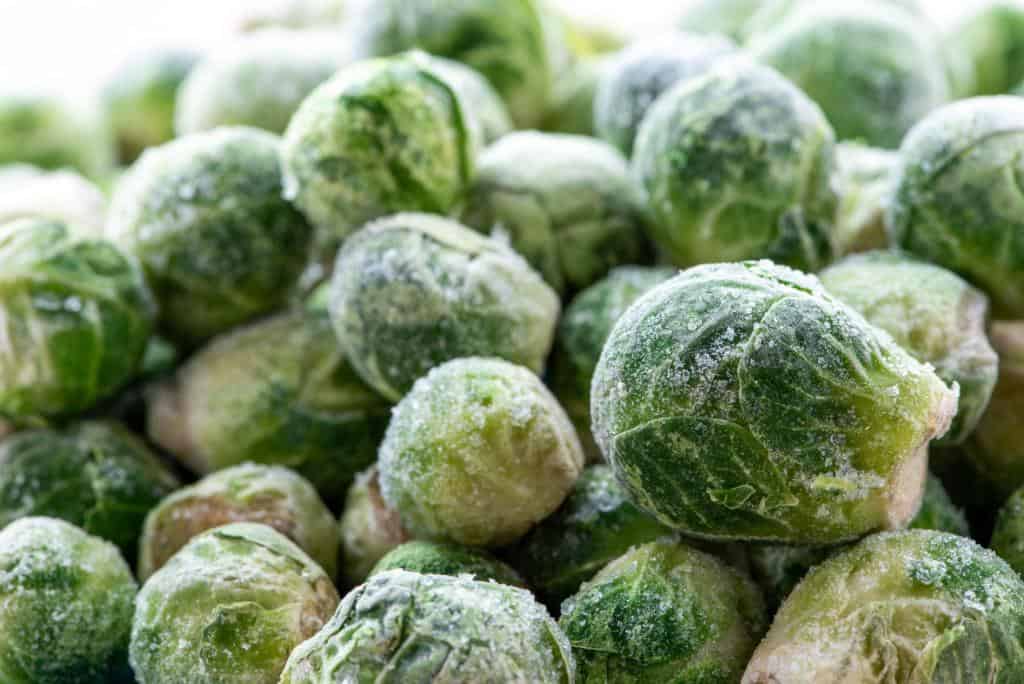
When it comes to cooking frozen Brussels sprouts, choosing the right ones is crucial to ensuring a delightful taste experience with minimal bitterness. To embark on this culinary journey, you need to select high-quality sprouts that have undergone proper freezing techniques.
Quality indicators serve as valuable guides when perusing the frozen Brussels sprouts aisle. Opt for sprouts that boast a vibrant green color, indicating their freshness and vitality. Avoid packages that show any signs of discoloration or freezer burn, as these may indicate a decline in quality. Furthermore, be cautious of sprouts with visible ice crystals or a strong odor, as these can be telltale signs of subpar freezing practices.
Freshness plays a significant role in preserving the natural flavors and nutrients of Brussels sprouts. Seek out brands that prioritize freshly harvested sprouts that are promptly frozen. Quick freezing techniques help lock in the sprouts’ freshness, ensuring a higher likelihood of a satisfying culinary experience.
To further enhance the chances of a less bitter taste, consider selecting specific varieties of Brussels sprouts. Certain varieties naturally exhibit a milder flavor profile and reduced bitterness compared to others.
Look for sweeter options like “Oliver” or “Dagan” to introduce a pleasant balance to your dish. Additionally, smaller sprouts tend to have a milder taste compared to their larger counterparts, providing another avenue to explore for a less bitter experience.
Preparing Frozen Brussels Sprouts for Cooking
Properly preparing frozen Brussels sprouts is a pivotal step in your culinary journey, as it can significantly reduce bitterness and enhance the overall flavor of these delightful vegetables. Let’s delve into the intricacies of preparing these sprouts to ensure a satisfying and delicious outcome.
Thawing the frozen Brussels sprouts is a recommended first step. You have a couple of options for this process. The first is to thaw them in the refrigerator overnight, allowing for a slow and controlled thawing process. Alternatively, if you’re short on time, you can use the defrost setting on your microwave. However, avoid thawing the sprouts at room temperature, as this can create an environment conducive to bacterial growth.
Once thawed, give the Brussels sprouts a thorough rinse under cold water. This step helps remove any ice crystals or debris that may have accumulated during the freezing process. Additionally, take a moment to trim off any discolored or damaged outer Brussels sprout leaves. To ensure even cooking, make a small incision at the base of each sprout, which promotes heat penetration and a uniform texture.
To further enhance the flavor profile and reduce bitterness, you can employ a simple technique: soaking the prepared Brussels sprouts in cold water for 10-15 minutes. This short soak allows water-soluble bitter compounds to leach out, resulting in a milder taste. After the soaking process, drain the sprouts thoroughly before proceeding with your chosen cooking method.
Blanching as a Technique to Reduce Bitterness
Blanching is a popular technique that can significantly reduce the bitterness in Brussels sprouts while retaining their vibrant green color.
The Blanching Process Step-By-Step
Follow these simple steps to blanch frozen Brussels sprouts:
- Bring a pot of salted water to a rolling boil.
- Add the thawed Brussels sprouts to the boiling water.
- Cook them for about 2-3 minutes until they turn bright green.
- Immediately transfer the sprouts to a bowl of ice water to stop the cooking process.
- Drain the sprouts and pat them dry before proceeding with your chosen cooking method.
How Blanching Affects Bitterness Levels
Blanching helps neutralize the bitter compounds in Brussels sprouts by partially breaking down glucosinolates and sulfur compounds. This results in a milder, less bitter taste while retaining their nutritional value.
Tips for Successful Blanching
- Use a large pot of boiling water to prevent overcrowding, ensuring even cooking.
- Monitor the sprouts closely to avoid overcooking, which can lead to mushiness.
- The ice water bath halts the cooking process and helps maintain the sprouts’ vibrant color and crispness.
How Do You Cook Frozen Brussels Sprouts So They Are Not Bitter?
Now that your Brussels sprouts are ready, it’s time to explore various cooking techniques that will help reduce bitterness and elevate their taste. Here are three popular methods:
1. Roasting Frozen Brussels Sprouts to Enhance Flavor
Roasting is another fantastic cooking method that brings out the natural sweetness in Brussels sprouts while reducing bitterness.
Roasting as a method to reduce bitterness
Roasting frozen Brussels sprouts caramelizes their natural sugars, counteracting the bitterness and resulting in a rich, nutty flavor. The high heat also helps to crisp the outer leaves, adding a delightful texture.
Seasoning and flavoring options for roasting
To enhance the flavor of roasted Brussels sprouts, consider incorporating the following seasonings and ingredients:
- Olive oil: Drizzle the sprouts with olive oil to promote browning and add a luscious mouthfeel.
- Garlic and herbs: Toss the sprouts with minced garlic, dried herbs like thyme or rosemary, or experiment with other flavorful seasonings.
- Balsamic glaze or honey: Add a touch of sweetness by drizzling balsamic glaze or honey over the sprouts before roasting.
- Parmesan cheese: Sprinkle grated Parmesan cheese over the roasted sprouts for an added savory note.
Roasting temperature and time recommendations
Preheat your oven to 425°F (220°C) for roasting Brussels sprouts. Arrange them in a single layer on a baking sheet and roast for approximately 20-25 minutes, or until they become tender and nicely browned. Toss them halfway through cooking to ensure even browning.
2. Sautéing Frozen Brussels Sprouts for a Milder Taste
Sautéing is a quick and easy cooking method that can help reduce the bitterness of frozen Brussels sprouts while adding delicious flavors.
Sautéing techniques for frozen sprouts
To sauté frozen Brussels sprouts, follow these simple steps:
- Heat a tablespoon of oil or butter in a skillet over medium heat.
- Add the frozen Brussels sprouts to the skillet and spread them out in a single layer.
- Cook the sprouts, stirring occasionally, for about 8-10 minutes, or until they become tender and lightly browned.
Enhancing flavor through seasoning and ingredients
To further enhance the flavor of sautéed Brussels sprouts, you can experiment with different seasonings and ingredients:
- Garlic and herbs: Add minced garlic and your choice of herbs such as thyme, rosemary, or parsley for aromatic flavors.
- Citrus zest: Sprinkle some lemon or orange zest over the sautéed sprouts to bring a bright and refreshing element.
- Spices: Incorporate spices like paprika, cumin, or chili flakes to add a touch of heat and complexity.
- Nuts or bacon: For extra texture and flavor, toss in toasted nuts like almonds or walnuts, or cook some bacon and crumble it over the sprouts.
Achieving the desired tenderness and reduced bitterness
To achieve the desired tenderness and reduce bitterness when sautéing frozen Brussels sprouts, make sure to cook them until they are crisp-tender. This means they should still have a slight bite but not be overly soft. The cooking time may vary depending on the size of the sprouts, so monitor them closely while sautéing.
3. Steaming Frozen Brussels Sprouts for a Delicate Flavor
Steaming is a gentle cooking method that helps retain the nutrients in frozen Brussels sprouts while providing a delicate and less bitter taste.
Steaming as a gentle cooking method
Steaming frozen Brussels sprouts is an excellent way to cook them without losing their natural flavors. The steam gently cooks the sprouts, preserving their texture and nutritional value.
Proper steaming equipment and techniques
To steam freeze Brussels sprouts, follow these steps:
- Fill a pot with an inch of water and bring it to a simmer.
- Place a steamer basket or colander over the pot, making sure it doesn’t touch the water.
- Add the frozen Brussels sprouts to the steamer basket, cover the pot, and steam for about 8-10 minutes, or until they are tender but still slightly crisp.
Retaining nutrients and reducing bitterness through steaming
Steaming is one of the best methods for retaining the nutrients in Brussels sprouts. It also helps reduce bitterness by gently cooking the sprouts without causing excessive breakdown of the sulfur compounds responsible for the bitter taste. Steamed Brussels sprouts have a delicate flavor and a pleasant, slightly crisp texture.
Incorporating Frozen Brussels Sprouts in Flavorful Recipes
Frozen Brussels sprouts can be a fantastic addition to various recipes, allowing you to enjoy their flavors while balancing any bitterness.
Delicious recipe ideas using frozen Brussels sprouts
Here are a few recipe ideas that can help you incorporate frozen Brussels sprouts into flavorful dishes:
| Recipe | Description |
| Roasted Brussels Sprouts | Toss frozen sprouts with olive oil, salt, and pepper, then roast them until crispy and golden brown. |
| Brussels Sprouts Stir-Fry | Sauté frozen Brussels sprouts with other vegetables, protein of your choice, and a flavorful sauce for a quick and healthy meal. |
| Brussels Sprouts Salad | Thinly slice thawed sprouts and toss them with your favorite salad ingredients, such as nuts, cheese, and a tangy vinaigrette. |
Combining Complementary Ingredients to Balance Bitterness
When incorporating frozen Brussels sprouts into recipes, consider using ingredients that complement their flavors and help balance any bitterness. Sweet and tangy ingredients like honey, balsamic vinegar, or citrus juice can counteract the bitterness and add depth to the dish.
Additionally, pairing Brussels sprouts with ingredients like bacon, nuts, or creamy cheeses can enhance their flavors and provide contrasting textures.
Creative Ways To Enjoy Brussels Sprouts Without the Bitterness
If you want to enjoy Brussels sprouts without any bitterness, consider trying these creative preparations:
- Brussels sprouts chips: Slice the sprouts into thin ribbons, toss them with oil and seasoning, and bake them until crispy for a delightful snack.
- Brussels sprouts slaw: Shred or thinly slice the sprouts, and toss them with a tangy dressing, along with other slaw ingredients like carrots or cabbage.
- Brussels sprouts gratin: Layer cooked Brussels sprouts with cheese, cream, and breadcrumbs, then bake until bubbly and golden for a rich and comforting side dish.

Other Techniques for Reducing Bitterness in Frozen Brussels Sprouts
Aside from sautéing and steaming, there are other techniques you can try to reduce the bitterness in frozen Brussels sprouts.
Marinating and Pickling as Flavor-Enhancing Methods
Marinating Brussels sprouts in a flavorful mixture, such as a tangy vinaigrette or a combination of herbs and spices, can help mellow the bitterness and infuse them with additional flavors. Similarly, pickling Brussels sprouts in a vinegar-based brine can transform their taste and create a tangy and slightly sweet profile.
Using Acidic Ingredients To Counteract Bitterness
Acidic ingredients like lemon juice, vinegar, or even tomatoes can help neutralize the bitter taste in Brussels sprouts. Adding a splash of lemon juice or a drizzle of vinegar to your cooked sprouts can add a refreshing acidity that balances out the bitterness.
Fermenting Brussels Sprouts for a Unique Taste Experience
Fermenting Brussels sprouts is another intriguing method that can result in a unique flavor profile. Fermentation not only reduces bitterness but also introduces tangy and complex flavors. You can ferment Brussels sprouts using a simple saltwater brine or incorporate them into fermented vegetable medleys like sauerkraut or kimchi.
Conclusion
Frozen Brussels sprouts no longer have to be synonymous with bitterness. By following these steps, you can transform them into a mouthwatering dish that will delight even the most skeptical taste buds.
Remember to choose high-quality frozen sprouts, thaw them properly, and explore different cooking techniques to achieve the best results. With a little creativity and the right flavors, you’ll soon discover the joys of enjoying Brussels sprouts without any hint of bitterness. Bon appétit!
FAQs
How long should I blanch frozen Brussels sprouts to reduce bitterness?
To blanch frozen Brussels sprouts and reduce bitterness, you should boil them for approximately 3-5 minutes. This blanching process helps to soften the sprouts and neutralize their bitter flavor.
Can I cook frozen Brussels sprouts without thawing them first?
Yes, you can cook frozen Brussels sprouts without thawing them first. However, keep in mind that thawing allows for more even cooking and better flavor absorption. If you choose to cook them directly from frozen, adjust the cooking time accordingly to ensure they are tender and cooked through.
Are there any specific seasoning recommendations to reduce bitterness in Brussels sprouts?
Seasoning plays a crucial role in reducing bitterness. Consider adding garlic, onions, herbs like thyme or rosemary, or spices such as cumin or paprika. Balancing the flavors with salt and pepper can also help mask any bitterness.
Can I use vinegar or lemon juice to remove the bitterness from Brussels sprouts?
Yes, both vinegar and lemon juice can be used to help remove the bitterness from Brussels sprouts. Adding a splash of either during cooking or as a finishing touch can provide a tangy counterbalance to the bitter taste.
Why are Brussels sprouts bitter in the first place?
Brussels sprouts contain natural compounds called glucosinolates, which can contribute to their bitterness. Various factors, including maturity and cooking time, can affect the concentration of these compounds in different sprouts. Overcooking can also intensify the bitterness.
Are fresh Brussels sprouts less bitter than frozen ones?
Fresh Brussels sprouts generally have a milder flavor and are often considered less bitter compared to frozen ones. Freezing can sometimes intensify the bitterness. However, proper cooking techniques can help reduce bitterness in both fresh and frozen Brussels sprouts.
Can I use sweeteners to counteract the bitterness of Brussels sprouts?
While sweeteners can add a touch of sweetness to Brussels sprouts, they may not effectively counteract bitterness. It’s best to rely on complementary flavors and seasonings to balance the taste. If desired, a drizzle of honey or maple syrup can be added sparingly during cooking for a hint of sweetness.

